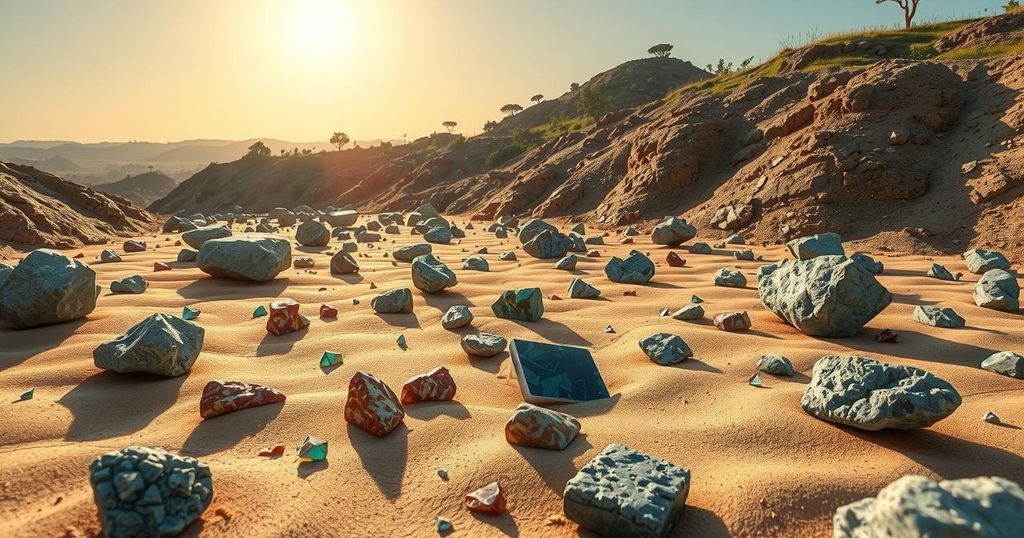Rwanda plans to enhance its mineral recovery rate from 40% to 80% by 2029 while increasing mineral exports from $1.1 billion to $2.2 billion. The Rwanda Mines, Petroleum and Gas Board has proposed ten strategies, including mechanization, local production of explosives, recycling technologies, and the engagement of the private sector, to achieve these targets.
The Rwandan mining sector currently experiences a mineral recovery rate of approximately 40%, with significant losses of 60% occurring during extraction processes. In response, the government has set an ambitious target to increase annual mineral exports from $1.1 billion in 2023 to $2.2 billion by 2029 while aiming to double the recovery rate to 80%. The Rwanda Mines, Petroleum and Gas Board (RMB) has outlined ten strategies to meet these goals.
1. Mechanization of Mining Operations: The RMB plans to enhance recovery rates through the mechanization of operations using modern equipment. This transition is essential as the current artisanal methods are inadequate. The RMB states, “There is a gap in companies trading in or offering mining-related services and equipment manufacturing.”
2. Affordable Electricity and Local Production of Explosives: Access to affordable energy and local explosive production is imperative to decrease mineral losses. The RMB notes that relying on imports creates challenges due to transportation costs, emphasizing, “Therefore, local production of these explosives would be an indispensable golden investment opportunity.”
3. Sensor-Based Sorting: The introduction of sensor-based sorting can substantially enhance recovery, particularly for complex ore types that traditional methods struggle to process.
4. Green and Recycling Technologies for Mining Businesses: Sustainability is becoming increasingly important, and the mining board is seeking investment in recycling technologies. This could lead to the recovery of minerals from waste, thus decreasing the reliance on new mining initiatives.
5. Geosciences Laboratory Operationalisation: The establishment and management of geosciences laboratories will support exploration and regulation by analyzing geological data, aiding resource identification and optimizing mining methods.
6. Delineating and Quantifying Mineral Resources: The Rwandan government, in collaboration with Rio Tinto, is conducting extensive exploration in new Prospective Target Areas (PTAs) to map out and assess mineral resources accurately.
7. Value Addition: The creation of additional processing facilities for minerals such as tungsten and lithium is being promoted to transform Rwanda into a regional value-addition hub. The RMB highlights that there are currently three state-of-the-art facilities in the country for this purpose.
8. Engaging the Private Sector: The private sector’s engagement is crucial, and the government has developed initiatives to stimulate foreign direct investment while promoting sustainable mining practices across the industry’s value chain.
9. Efficient Water Management: Effective water management is vital to enhancing mineral recovery. Optimal use of water and improved recycling can stabilize processing conditions, improving recovery rates significantly.
10. Professionalisation and Improving Geological Knowledge: Developing geological knowledge is essential for efficient mineral extraction. Approximately 75,000 workers in the mining sector require training to develop necessary skills for advanced mining operations.
In conclusion, Rwanda’s strategy to double its mineral recovery rate and enhance its export potential relies heavily on modernization and sustainability. The ten outlined initiatives, including mechanization, local production of essential inputs, and improved water management, represent a comprehensive approach to evolving the mining industry. By actively engaging the private sector and professionalizing the workforce, Rwanda aims to become a leader in mineral recovery and exportation by 2029.
Original Source: www.newtimes.co.rw




